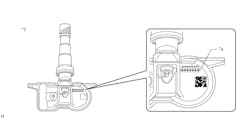The price of a gallon of gasoline in Europe is more than $8. Could that one day be the price of gas here in the United States?
Unless some catastrophic event occurs, I say no. Domestic oil production is high, and there are many in Washington, D.C., both Democrats and Republicans alike, who appear to be fighting against it.
Then why is anyone predicting otherwise? I remember reading that some in the oil and gas industry believed gas would cost $5 a gallon by 2012. They, of course, were wrong. And as the year unfolds, they can’t even claim they were ahead of their time.
I don’t know what the price of gasoline is in your area, but in northeast Ohio, it is still less than $4 a gallon. Although there is no set trend, here are the numbers, courtesy of the American Automobile Association’s weekly “Fuel Gauge” report: $3.35 a gallon at the beginning of the year, $3.76 five months later. One year ago, the average price of gas was higher than that.
The national average, by the way, is $3.63 a gallon, in large part due to high prices on the West Coast.
That brings me to an e-mail I received recently from United States Senator Sherrod Brown. “I’m tired of the stranglehold oil companies have on our national energy policy,” he wrote. “And like many Ohioans, I believe we need to take a ‘do it all’ approach to reducing gas prices.”
With that said, he wanted to know what I thought of six possible solutions, although I’m not sure why it matters if he wants to “do it all.” Here they are (with a few of my comments in parentheses).
1. Crack down on speculation. “Prevent Wall Street speculators from driving up the price at the pump. A recent report found that excessive speculation adds 56 cents to every gallon of gas you put in your car.” (The “report” to which he is referring was a Forbes story on www.forbes.com.)
2. Drill it here, keep it here. “If oil companies produce oil on public lands in the U.S., then it should stay here. No longer should oil companies export our own oil overseas, when we need it here at home.”
3. Cut wasteful subsidies for “Big Oil.” “End wasteful tax giveaways for Big Oil and use the savings to break the stranglehold Big Oil has on consumers by investing in clean energy.” (That would have to be “clean energy” as it applies to light vehicles; otherwise, the lack of subsidies will cause the oil companies to raise gas prices.)
4. Improve fuel efficiency of cars and trucks. “Increase fuel-efficiency standards for vehicles so that consumers get more miles per gallon and spend less on gasoline.” (This could lead to higher prices. State and federal — and, in some cases, local — governments probably would take this opportunity to raise taxes on fuel. The net result would be consumers paying more per gallon but the same per tankful, and the government pocketing the extra money.)
5. End oil cartels. “Give the U.S. the authority to go after oil-producing nations, like the members of OPEC, that band together to drive up the price of oil.”
6. Tap America’s oil reserve. “Open the Strategic Petroleum reserve to increase domestic oil supply and lower prices.” (I notice he didn’t mention fracking, which is a big issue in our state.)
Since I bought my car in May of 2010, the most I have paid for a gallon of gas is $3.99 (May 7, 2011). The least I have paid is $2.93 (Dec. 13, 2010). Although I don’t see the lower number changing anytime soon, the higher number shouldn’t go much higher than $4 a gallon, and certainly not $5 a gallon.
And $4 a gallon shouldn’t hurt your business. People are still going to drive. Total miles driven last year were down by more than 38 billion miles compared to the previous year, but that only works out to 137 miles per vehicle. ■
If you have questions or comments, please e-mail me at [email protected].




